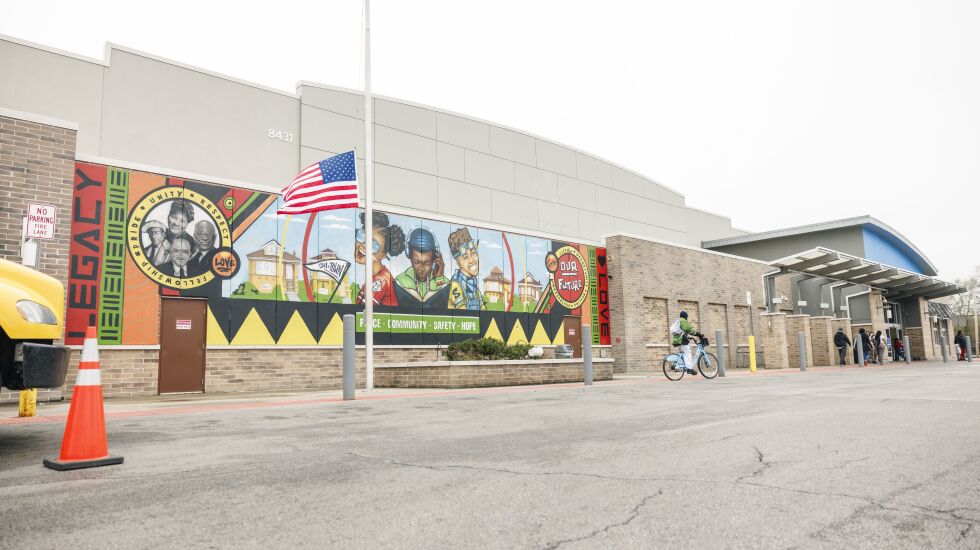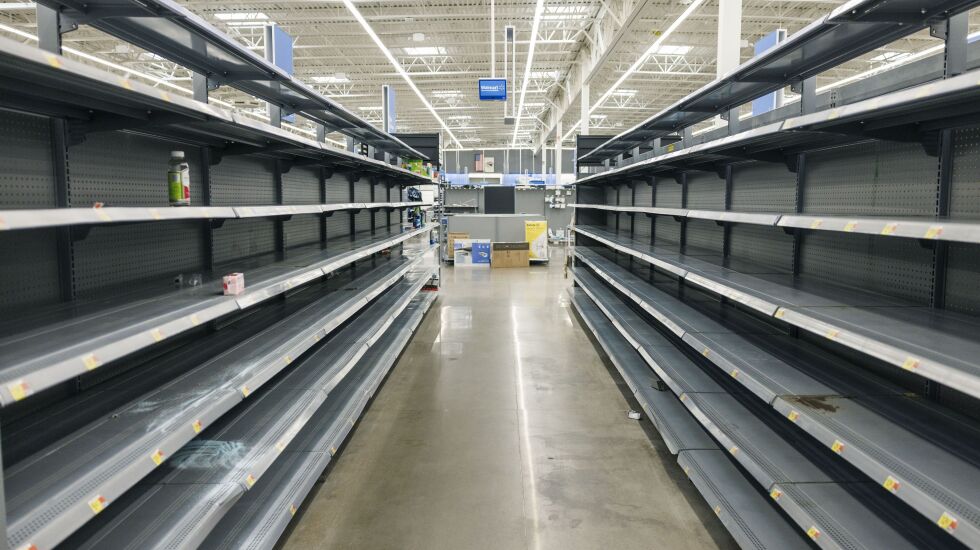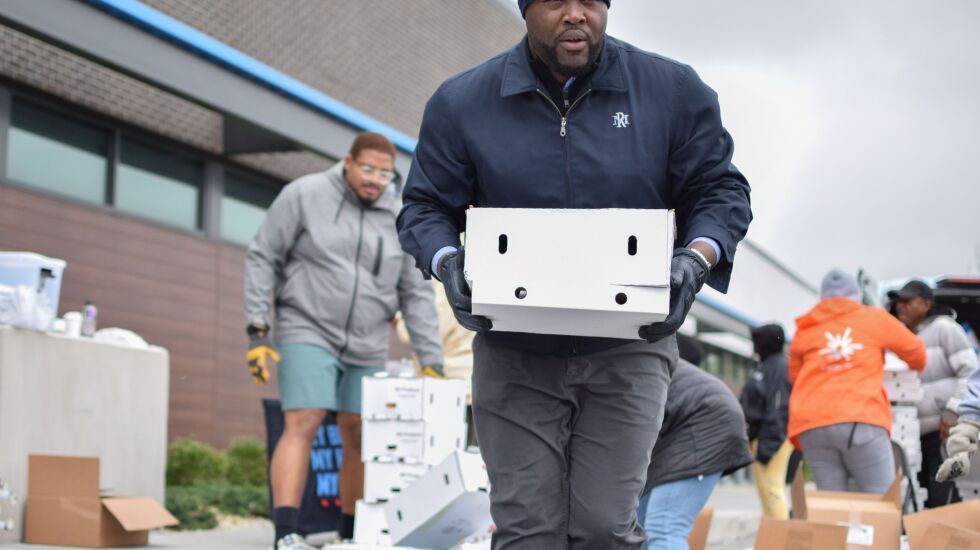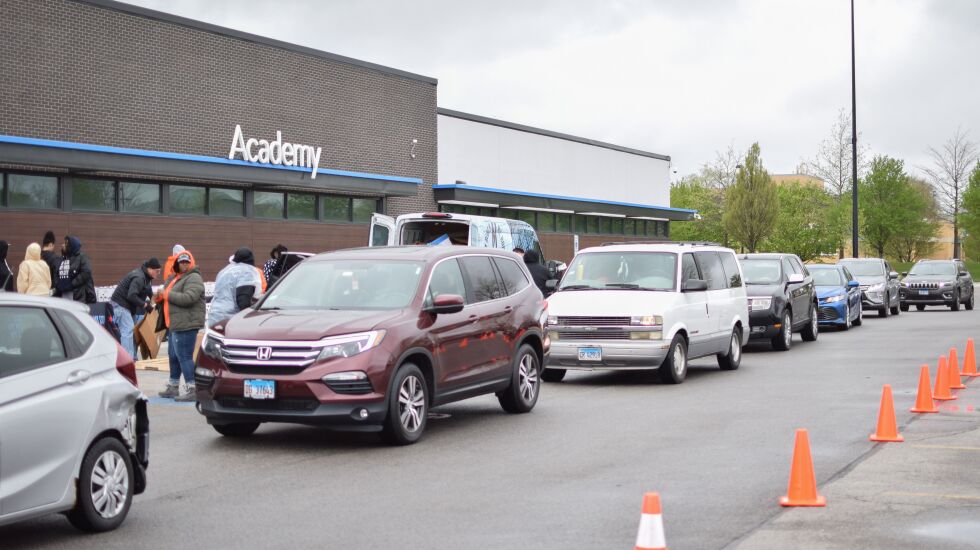
The shadow of Walmart’s logo and name hung above the Chatham Supercenter location on Sunday, its last day of operation, as dozens of shoppers streamed in to shop among increasingly empty shelves.
Less than a week ago, the company announced it would close its store at 8431 S. Stewart Ave. along with others in Little Village, Kenwood and Lakeview, saying they were “losing tens of millions” annually and that losses had doubled in the last five years.
The company also noted the $70 million it spent in recent years creating healthcare facilities at its city stores and the Walmart Academy training center, which were also set to close.

Myesha McGarner, a 30-year-old South Shore resident and regular shopper at the Chatham location, said she hadn’t realized it was closing until she entered to find empty shelves and a “ghostly” atmosphere.
She called the company’s explanation a “cop out” and “infuriating,” and said she thought the closures had more to do with the area’s history of disinvestment.
“Neighborhoods that are impoverished and underserved continue to have things close down that they need to be better,” McGarner said. “Another store closing down on the South Side. What else is new? They’re always taking stuff from the South Side.”

Cynthia Brown, another regular at the Chatham Supercenter and a 20-year resident, agreed, saying it was part of a pattern of chain stores leaving the area and creating more distance between communities and the resources they need.
“It was closer than going to Ford City. A lot of the stores went west, so this side of town didn’t have many stores like this,” Brown said, mentioning closures of other big-box stores in the area over the years. “Kids had jobs here, the elderly had jobs here. It’s an injustice.”
McGarner also said distance was a concern, noting her commute to the store had doubled to a 30-minute drive, and she worries about people who have to rely on public transit having even longer shopping trips.
Brown said she hoped it wasn’t the end of Walmart in Chatham; new leadership in the ward has some different ideas about what could potentially fill the soon-to-be-empty building.

As for what’s next, the incoming 21st Ward alderman, Ronnie Mosley, said he’s unsure, noting Walmart gave no advance notice to city officials — which he said would have been appreciated, so they could put together a resource guide for those who used the store’s wide-ranging services.
Mosley, who will be sworn-in next month, said Walmart indicated it had met with potential tenants for the space. Mosley hopes it will be filled sometime in the next three years, possibly with a co-op, something he expressed interest in on the campaign trail.
Regardless, he said, the community’s voice is the most important in deciding what’s to come.
“We’ve gotta make sure the community is at the table,” said Mosley, as he stood outside the Walmart Academy at the opposite end of the Supercenter’s parking lot.
That’s where the community group My Block My Hood My City was distributing $33,000 worth of food and meals — enough for about 4,000 people — according to the group’s founder, Jahmal Cole.
The nonprofit already provides 50 boxes of food to elderly city residents weekly, though it plans to increase that number to 250 and hold similar “feed the people rally” events monthly.

“It seems the corporations start to feel like their bottom lines are more important than community health,” Cole said.
Ilandrea Nichols, senior service coordinator for My Block My Hood My City, emphasized that the loss was greater than just a fresh food source.
“It’s not just a Walmart that’s closing, it’s also a clinic that’s closing, a grocery store that’s closing, and a resource center that’s closing,” Nichols said.
Amid the uncertainty, McGarner said whatever comes next needs to fill the gap the store’s closing creates. “If it’s anything else, it’s not serving the community.”







